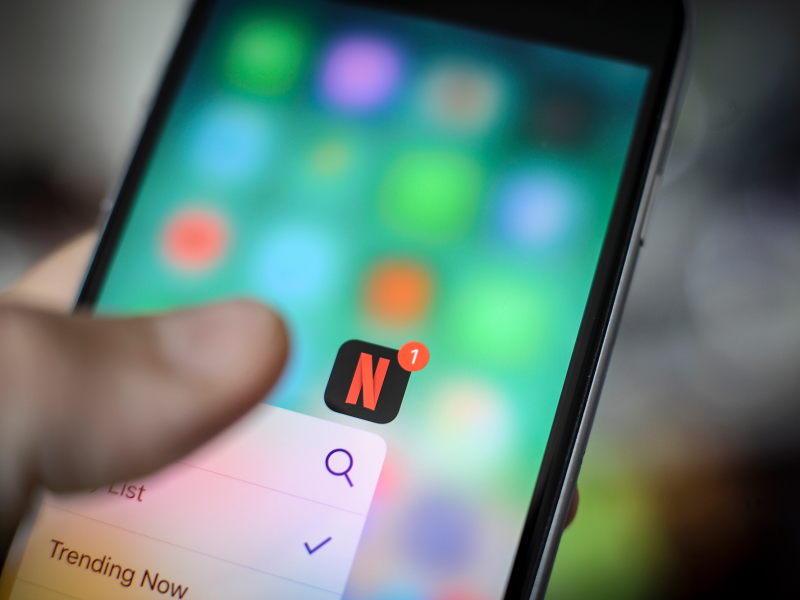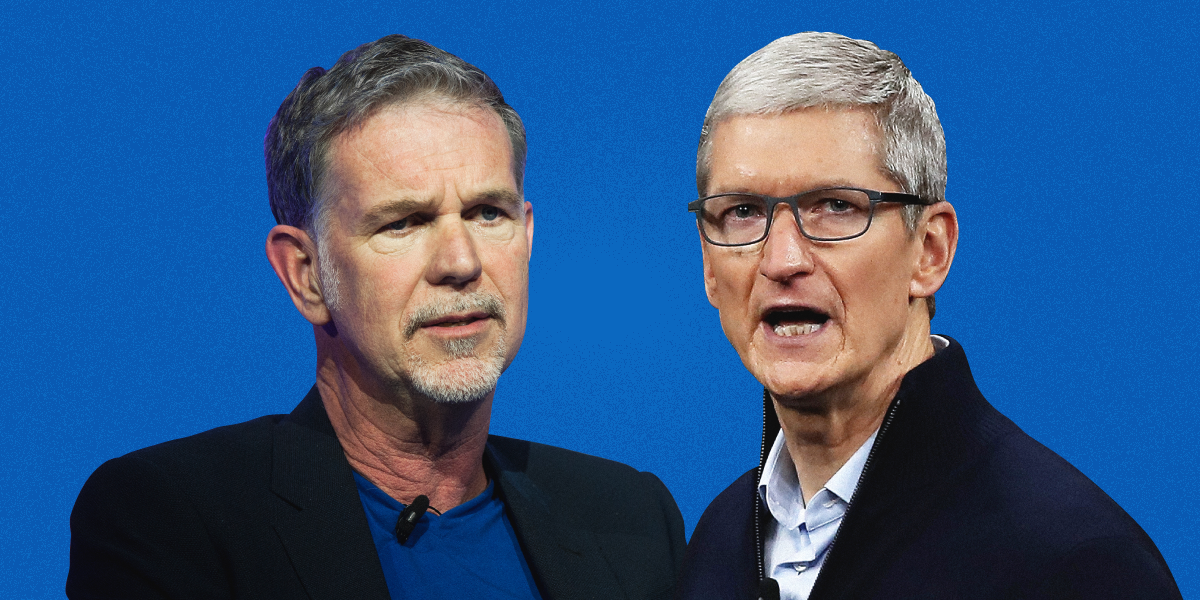- Apple takes a 15% to 30% cut of subscriptions made through iTunes.
- Netflix quietly made a change earlier this month that allows it to circumvent that fee by requiring people to create a new account on its website.
- The Netflix app will still be available for iPhones and iPads.
- It’s a bad sign for Apple’s push for online-services revenue, of which App Store fees are a major component, and other app makers like Spotify could try similar moves.
Many people pay about $11 a month for Netflix.
In exchange, they get a large library of TV shows, movies, and original content they can stream on several devices, including iPhones and iPads.
But if someone subscribes to Netflix through the built-in billing system for iPhones and iPads, the streaming giant gets only 70% to 85% of that $11 a month.
The rest goes to Apple.
Apple's App Store is closely controlled, and if an app developer wants to use Apple's billing infrastructure, Apple gets a hefty cut.
That brings us to the current situation: Netflix quietly removed the iTunes billing option from its iPhone app, VentureBeat reported late last week.
That means that if you download the Netflix app on an iPhone and would like to pay to watch content, instead of using your fingerprint or face to bill your iTunes account, you'll be directed to a website and asked to sign up for a Netflix account.
This enables Netflix to keep the 15% to 30% that Apple would've otherwise taken.
Netflix isn't a minor app in Apple's walled garden either, according to Sensor Tower, an app-analytics firm:
- It was the No. 1-grossing app for all of November on Apple's US App Store.
- Netflix has collected an estimated $1.4 billion through Apple's and Google's app marketplaces.
- In the third quarter, Netflix gained 50 million new users, bringing it to over 600 million app installs worldwide.
Netflix is a whale - and for years Apple was able to take about 30% of the money its customers paid to the app, simply because they signed up on an iPhone or iPad.
This was an untenable situation from Netflix's perspective. The streaming giant is going into debt to make new shows and enter new markets, and it can't have millions of subscribers essentially paying less because Apple is between it and someone watching "Bird Box" on an iPhone.
Many app developers I've spoken to about Apple's App Store cut have strong feelings about the arrangement. While some argue that 30% is a fair price to pay for secure and easy distribution to a billion devices, others have argued that the cut essentially wipes out their margins and makes it much more difficult to produce high-quality software for iPhones and iPads without resorting to tricks and in-app purchases.
This is one reason that a few years ago Apple shifted its terms slightly - now if a customer subscribes to your app with regular payments, after a year Apple's portion of the sale drops to 15% from 30%.
But Netflix's move suggests that Apple's reduced fee after a year was not enough to make it happy. If Netflix is successful and doesn't see a decline in new sign-ups, expect other giants like Spotify, HBO, or perhaps even Tinder to try a similar move.

Apple has highlighted the App Store as one of its biggest growth opportunities as iPhone sales slow, saying investors should think about the services Apple sells to existing customers, of which the crown jewel is the fees it collects from the App Store.
Netflix leaving Apple's platform isn't a good sign for sustained growth - remember, it's the top-grossing app on the App Store. "The move is a fractional negative to earnings, along with a psychological headwind to investors embracing the theme of Apple as a service," Gene Munster, the Loup Ventures founder, wrote in an email on Monday.
"That said, we believe Spotify is the only other brand at risk of leaving, and the Apple as a service theme is intact," he continued.
Of course, you will still be able to watch Netflix on iPhones and iPads. The app isn't being pulled off the App Store, and people subscribed through iTunes will be grandfathered for now. For customers, not a lot is changing.
But the episode reveals how contentious Apple's control of the App Store is and how many developers are trying to circumvent the 30% fee. The structure faces legal challenges as well - the Supreme Court recently heard an argument that the cut raised prices for consumers and might violate antitrust laws.
On Monday, the top-grossing app in the United States was the gaming sensation Fortnite, whose developer has cut Google out of downloads on Android devices and is trying to build its own app store. For now, it makes its money from in-app payments, which are harder to circumvent than a subscription.
But it's a safe bet that all the companies making millions from Apple's App Store are planning for a day where they might not have to cut Apple in on the transaction.

